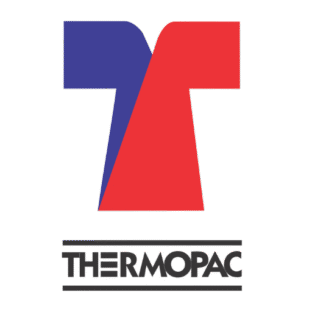In today’s fast-evolving industrial landscape, flexibility and scalability is the key to long-term success. This is especially true in the used oil re-refining sector, where feedstock availability, market demand, and technological advancements can change rapidly. Traditional fixed-capacity plants often struggle to adapt, resulting in underutilized assets or costly upgrades.
At Thermopac, we’ve pioneered modular re-refining systems that allow businesses to expand capacity, integrate advanced processes, and achieve higher operational efficiency, while minimizing downtime and investment risk.
Let’s explore how modular design is transforming the way used oil re-refining plants are engineered and operated.
1. What is Modular Design in Re-Refining Plants?
Modular design breaks down a plant into smaller, self-contained units or modules. Each module can perform a specific part of the re-refining process such as dehydration, evaporation, polishing, or blending, independently, while being integrated into the overall plant system.
Key features of modular plants include:
- Independent processing units that can operate on their own or in parallel
- Ease of assembly and installation, reducing construction time
- Plug-and-play expansion, allowing new modules to be added as needed
For Thermopac clients, this means that plants can start at a manageable capacity and grow gradually without major redesigns or interruptions.
2. Advantages of Modular Design
a) Scalability and Flexibility
Markets and feedstock supply are rarely static. A modular system allows operators to:
- Start with a smaller capacity and add modules as supply and demand grow
- Adjust throughput for peak or off-peak periods without affecting the entire plant
- Integrate new technologies, like advanced thin-film evaporators or regenerative polishing systems, without shutting down the plant
b) Reduced Capital Expenditure (Capex) Risk
Instead of investing in a large, fixed-capacity plant upfront, client can:
- Phase investment across multiple modules
- Achieve earlier revenue by commissioning smaller modules first
- Optimize spending based on actual demand and feedstock availability
c) Faster Installation and Commissioning
Since modules are pre-engineered and tested, installation is faster and more predictable than conventional construction. This reduces downtime and allows plants to start generating revenue sooner.
d) Simplified Maintenance and Upgrades
Modules can be serviced individually without halting the entire operation. Future upgrades whether capacity expansion or technology improvements can be added without complex retrofitting, keeping the plant future-ready.
3. Thermopac’s Modular Systems: A Turnkey Approach
Thermopac’s modular re-refining systems combine engineering expertise, process optimization, and global experience to deliver turnkey solutions:
- Customized Modules: Each unit is engineered for your specific feedstock, yield expectations, and product requirements
- Integrated Design: Modules are seamlessly connected to minimize energy loss, streamline operations, and ensure safety
- Process Optimization: Every module is optimized for energy efficiency, minimal waste, and high base oil recovery
- Global Standards: Our modular systems comply with international standards, making them suitable for both domestic and export operations
This approach ensures that clients not only get a plant that works today but also a system that can adapt to future challenges.
4. Real-World Impact of Modular Design
The modular approach has a tangible impact on operational and financial performance:
- Faster ROI: Smaller initial investments and phased expansion accelerate the payback period
- Reduced Operational Risk: Independent modules reduce the likelihood of total plant shutdown due to maintenance or unexpected issues
- Sustainability: Modular plants consume energy efficiently, integrate heat recovery systems, and minimize waste
- Adaptable to New Markets: As regulations and quality standards evolve, modules can be upgraded individually to meet new compliance requirements
At Thermopac, we have implemented 31 modular plants worldwide, each designed to maximize efficiency, profitability, and long-term sustainability.
Conclusion: Modular Design is the Future of Re-Refining
Modular design is more than a construction technique. It’s a strategic approach to industrial resilience. By allowing plants to scale, adapt, and upgrade without major disruptions, it empowers operators to meet market demand, control costs, and stay ahead in a competitive industry.
With Thermopac’s turnkey modular systems, clients benefit from:
- Scalable solutions tailored to their feedstock and market
- Optimized process efficiency and energy usage
- Reduced Capex and Opex risk
- Future-ready systems that grow with their business
In an industry where change is constant, modular design ensures your plant is ready for tomorrow — today.
